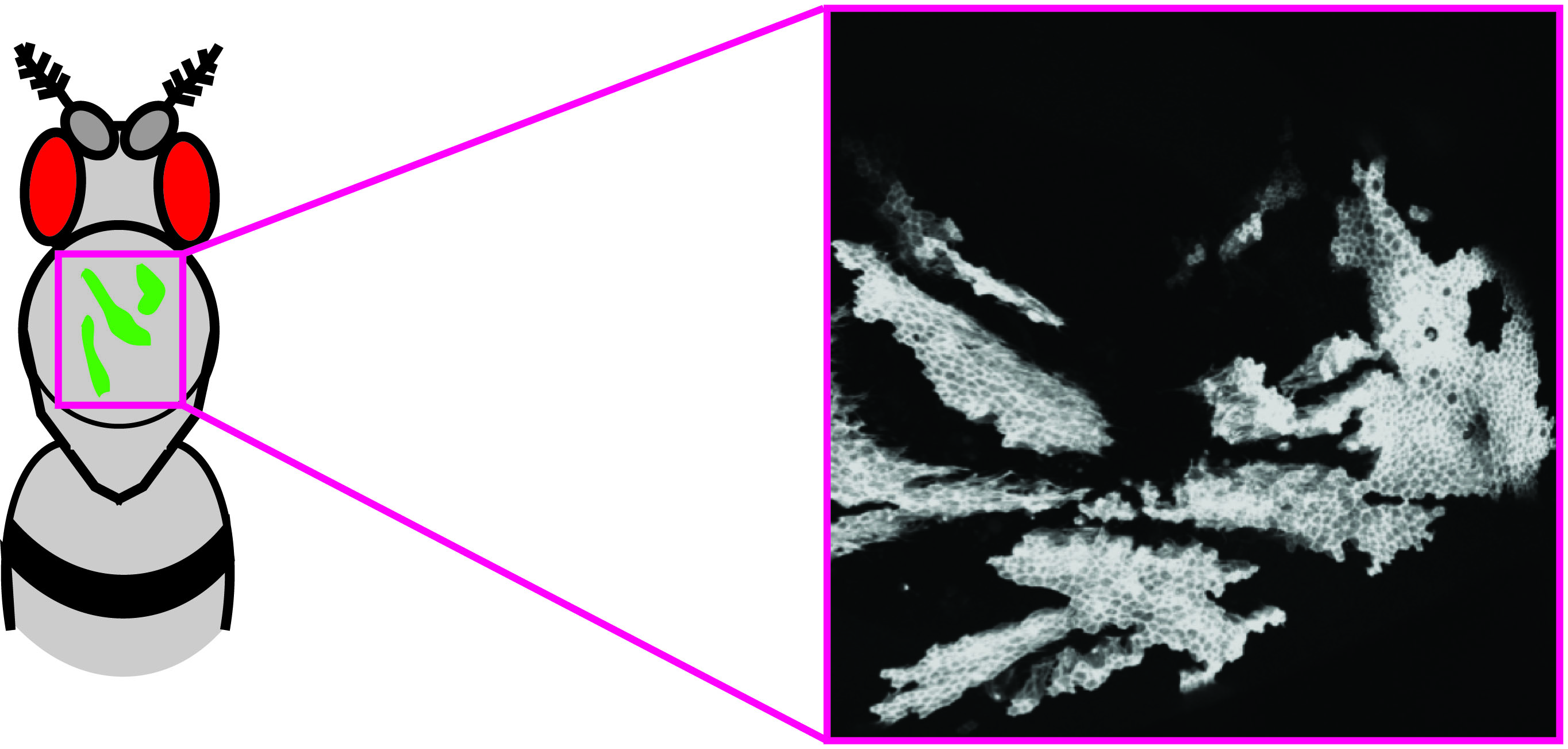Scientists from the University of Nottingham have taken a major step towards understanding how cancerous tumours can invade different areas of the body, which could be vital in helping to prevent millions of cancer-related deaths.
In the new research, published in the journal iScience, experts from the School of Life Sciences at the University used fruit flies to study tumour cell invasion. Invasion is a biological process where a cancerous tumour cell breaks off the primary tumour and penetrates the surrounding tissues. These cells may then go off to another part of the body and form a secondary tumour – a process known as metastasis.
Metastasis is the biggest killer in cancer. Over 90% of cancer deaths are caused not by the primary tumour, but by one or more secondary tumours.
This newly published study identified numerous genes that prevent invasion (called invasion suppressors). By identifying invasion suppressors, and by understanding how the process of invasion occurs, experts may be able to prevent or slow tumour progression toward malignancy in the future.
The research is part of the Fly Cancer Screen, a Cancer Research UK supported project, carried out by Dr Marios Georgiou and colleagues at the University of Nottingham, which uses the fruit fly to identify conserved genes that enhance or suppress tumour progression.
Many genes have been found to be frequently mutated in a variety of human cancers, but for the majority of these genes, it is not known whether these mutations affect tumour behaviour or disease progression in any way. Using the genetic amenability of the fly, scientists generated labelled tumours with specific gene mutations in the living animal and carried out a detailed systematic loss-of-function analysis.

They generated a database with 33 different phenotypic categories, each describing a specific aspect of tumour behaviour. This allowed them to record a highly detailed analysis of how loss of an individual gene can affect tumour behaviour. This led to the identification of many genes that affect tumour behaviour in a wide variety of ways and thus offers a unique starting point to further investigate the molecular mechanisms of multiple aspects of tumour progression.
Dr Marios Georgiou, one of the authors of the study, said: "Metastasis is the leading cause of death for cancer patients, so it is imperative that we improve our understanding of the molecular mechanisms that underlie progression of tumour growth towards malignancy. Our latest findings are another step towards this."
To understand tumour transition to malignancy, and to develop new therapeutic strategies, these findings will be key to understanding the molecular basis of this event. This work enabled the discovery of functional cooperative regulators of invasion and the establishment of a network of conserved invasion suppressors, which will help to inform future research in this area."






